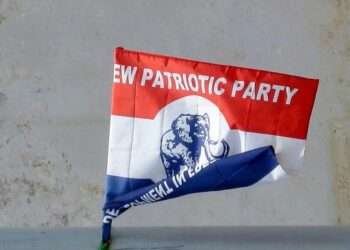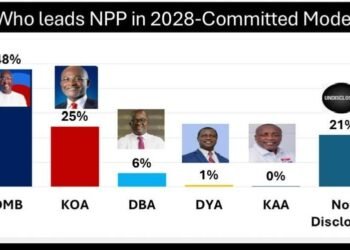Oliver Barker-Vormawor, a lawyer and outspoken political critic, has lauded the Supreme Court ruling on December 27, 2024, over the disputed Parliamentary Seats involving EC, the NPP, versus the National Democratic Congress (NDC).
He began by pointing out the need for the differentiation between doing the right thing rightly and doing the right thing wrongly. To him, it is the underlying procedural questions which lies in the heart of the matter.
He indicated that, what is at stake in our democracy is the right to be heard. He criticized the High court’s refusal to allow a fair hearing on the part of the NDC. Thus the Supreme Court has brought clarity and maturity to the decision. He beckoned;
“One of the things that we can agree the Supreme Court has done is a Solomonic judgment. It’s a judgment that, for lack of a better word, favors our democracy and enhances the rule of law.”
Oliver Barker-Vormawor
However, he noted that while the judgment was significant, it did not resolve the fundamental legal question of whether the EC had the authority to re-collate and re-declare results.
Moreover, he analyzed the EC’s actions and shed light on the procedural and legal challenges on the matter.
Central to his submission was the high court’s mandamus application, which sought to compel the EC to perform its statutory duty of collating results. Barker-Vormawor argued that this application raised critical procedural questions. He emphasized;
“The mandamus requires that you make a showing that the Electoral Commission has either failed to collate or is refusing after a reasonable demand has been made on it with a reasonable time to collate. It is surprising to me that in the High Court proceedings, the EC, even though it has not said anywhere that it is refusing to collate, went ahead and did not oppose that point.”
Oliver Barker-Vormawor

He emphasized that the EC’s failure to explicitly state its refusal or inability to collate results undermined the basis of the mandamus application.
Moreover, Barker-Vormawor criticized the EC’s actions describing them as part of a broader strategy to politicize the judiciary.
“The commission’s persistent recourse to placing the judiciary before further complaint, which to me seeks to undermine judicial oversight by putting in place what they consider to be reversible outcomes.”
Oliver Barker-Vormawor
He expressed concern over the EC’s rash decision to proceed with gazetting results despite pending legal challenges, describing this as an attempt to place the courts in a difficult position.
Barker-Vormawor highlighted the contradictions in the EC’s position. He indicated the chain of legal validity of the declared results, of which the gazette has been broken, and that the Supreme Court has quashed those. He clarified;
“It means that the gazette which is based on those declarations are null and void; And have no legal effect. And I know a number of people have suggested that the EC can go ahead and submit those gazettes to Parliament and parliament ought to respect it. I don’t think that is going to happen. Unless obviously, we see what happens in court.”
Oliver Barker-Vormawor

Meanwhile, others raised the possibility of the NPP withdrawing the mandamus application, of which he stated that, it is possible for the NPP to withdraw the mandamus application. However, he emphasized that regardless of such a decision, the Supreme Court ruling still stands. Thus those declarations remain null and void such that they do not apply.
Third-Party Participation in Legal Proceedings
Another key point was the need for third-party voices in ensuring fairness and accountability. He reiterated;
“If you have an adversary, which is in fact not a proper adversary like the EC is doing, that raises the question on why it heightens the need for a third-party voice to be admitted into the conversation.”
Oliver Barker-Vormawor
This remark underscores the importance of including multiple perspectives in resolving disputes to prevent one-sided outcomes.
The discourse serves as a reminder of the critical role of legal and procedural safeguards in maintaining public trust in electoral processes.
READ ALSO; Spotify Denies Favouring Kendrick Lamar Over Drake























